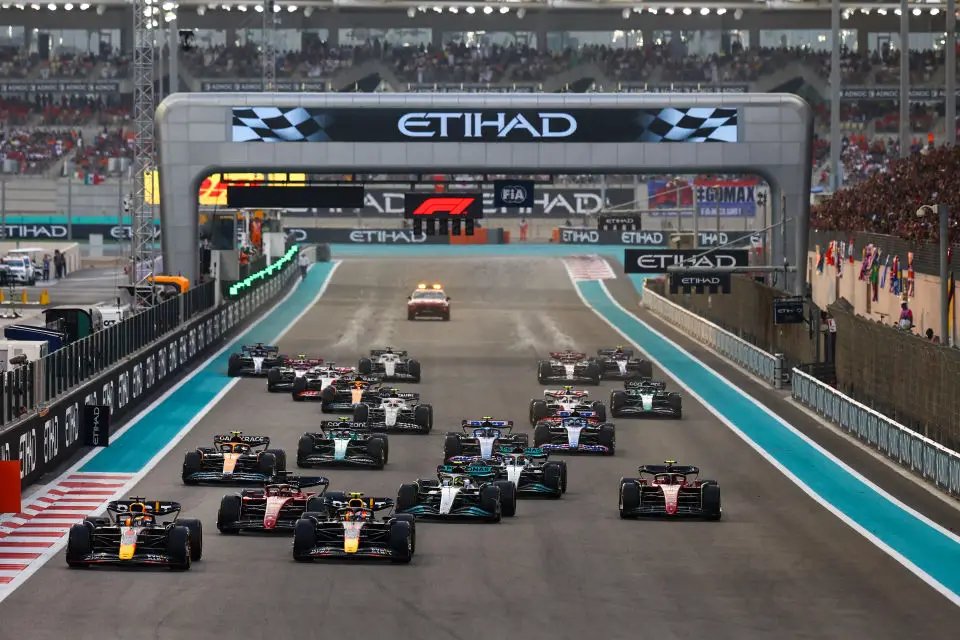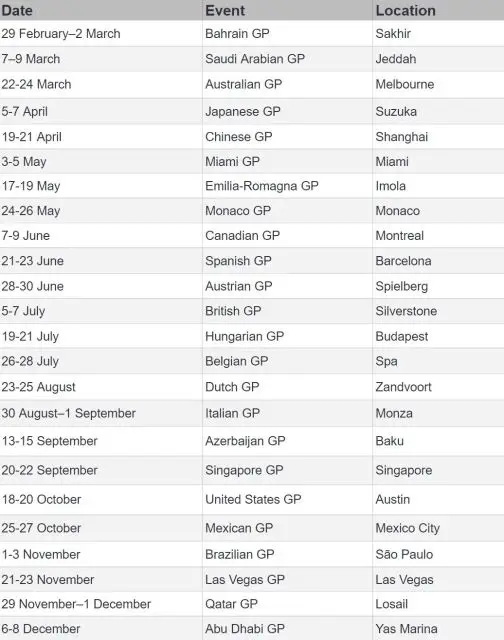Breaking New Ground: The 2024 F1 Calendar Unveils Record 24 Races, Including the Return of the Chinese Grand Prix
The 2024 Formula 1 season is set to break records with a 24-race calendar, starting from 29 February and concluding on 8 December. This expansion includes the notable return of the Chinese Grand Prix, marking a significant shift in the F1 landscape.
Key Takeaways:
- Record-Breaking Calendar: The 2024 F1 season is the longest in history, featuring 24 races globally. This surpasses the previous record of 22 races in the 2023 season. The season kicks off with the Bahrain Grand Prix on 2 March and concludes with the Abu Dhabi Grand Prix on 8 December.
- Strategic Adjustments for Sustainability and Religion: In alignment with Formula 1’s Net Zero 2030 commitment, the calendar has been regionalized to reduce the carbon footprint. Additionally, the Saudi Arabian Grand Prix has been rescheduled to accommodate the commencement of Ramadan.
- Significant Changes to Traditional Scheduling: The Japanese Grand Prix moves to April, preceding the Chinese Grand Prix. The Azerbaijan Grand Prix shifts to September, and the Qatar Grand Prix becomes the penultimate race, addressing climate considerations.


Formula 1’s 2024 season is gearing up to be a historic one with a record-breaking 24 races scheduled. This expansion is not just a numeric increase but also reflects a strategic shift in the sport’s approach to scheduling and sustainability. The season, beginning on 29 February and running till 8 December, will see teams and drivers navigate a global circuit like never before.
Pre-season testing is slated to start in Bahrain from 21 February, leading up to the Bahrain Grand Prix on 2 March. This race, along with the Saudi Arabian Grand Prix on 9 March, has been scheduled on Saturday nights, a move necessitated by logistical challenges and religious observances. The Saudi Arabian Grand Prix’s adjustment is particularly significant, as it respects the commencement of the holy period of Ramadan.
The 2024 season also marks the return of the Chinese Grand Prix, a much-anticipated event that was last held in 2019. Its absence in recent years was due to stringent COVID-19 restrictions in China, making its comeback a key highlight of the upcoming season.
Formula 1’s commitment to sustainability is evident in the efforts to regionalize the race calendar. Stefano Domenicali, President and CEO of Formula 1, emphasized this in his statement, noting the balance achieved between traditional races and new venues. This approach aligns with the sport’s Net Zero 2030 commitment, showcasing a proactive stance towards environmental concerns.
Additionally, the rescheduling of the Japanese Grand Prix from its usual September slot to April represents a significant shift in traditional scheduling. This move, along with the change in dates for the Azerbaijan and Qatar Grands Prix, indicates a thoughtful approach to dealing with various challenges, including weather conditions and logistical demands.
As the world of Formula 1 braces for an unprecedented season, fans and stakeholders alike can look forward to a year of thrilling races, strategic innovations, and a continued journey towards a more sustainable future in motorsports.


